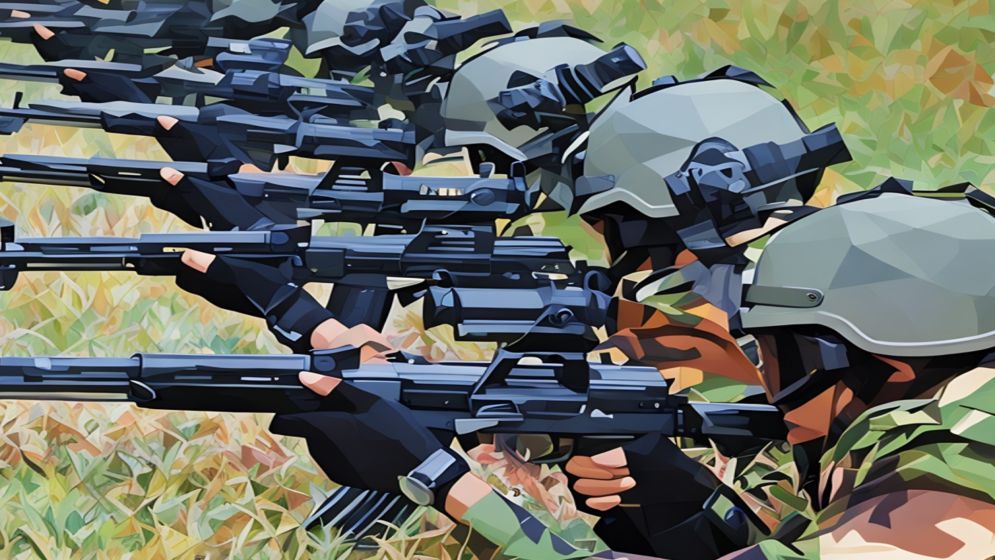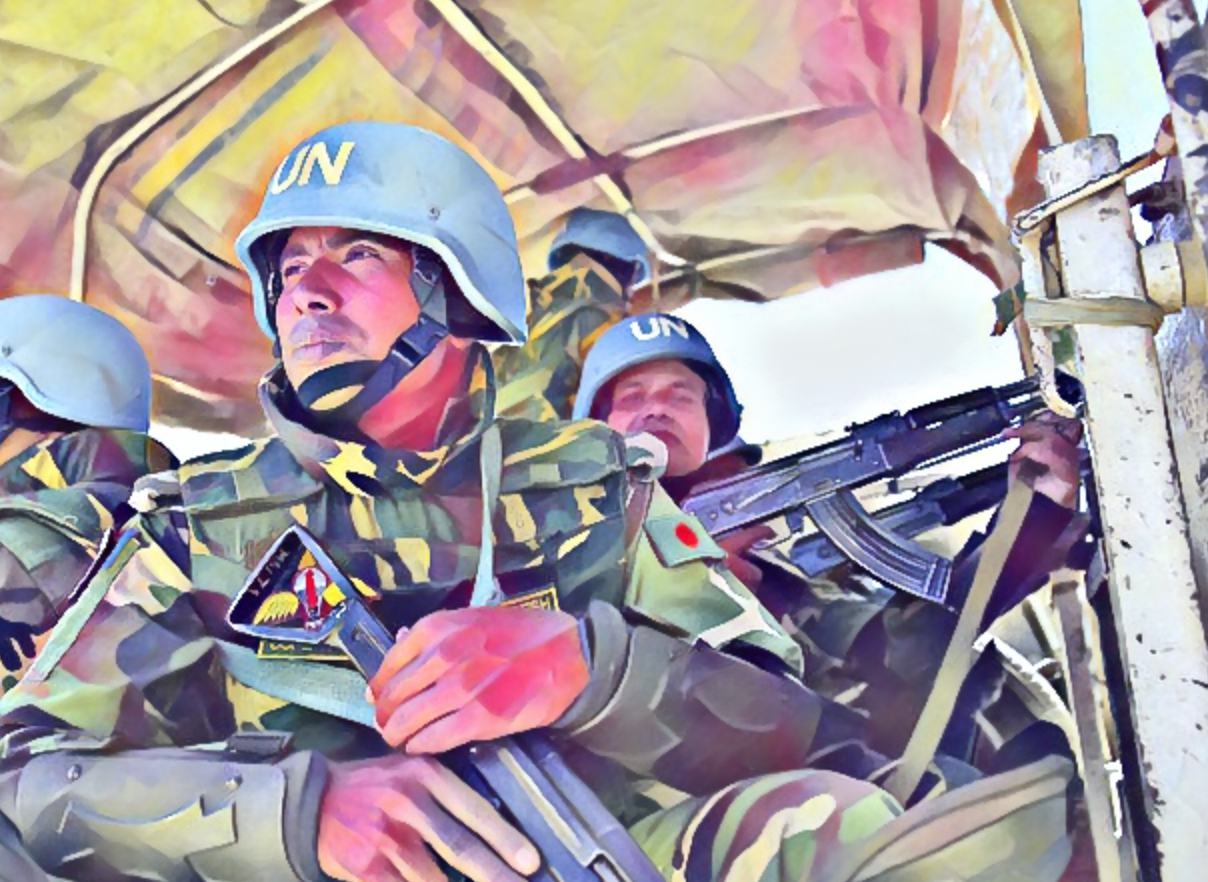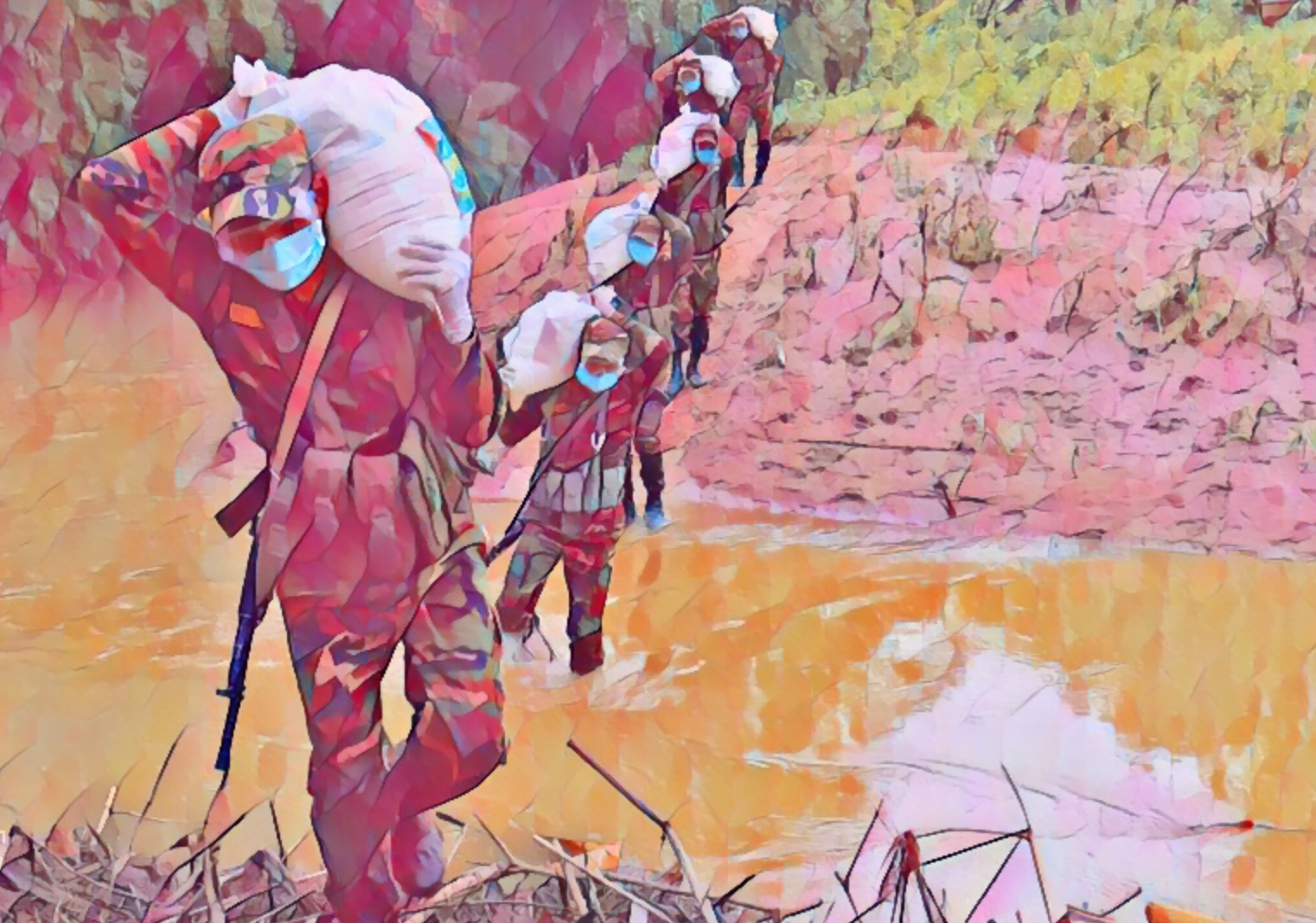Reimagining the role of military in a changing global order

The prevailing narratives around warfare often focus more on the history and evolution of the concept itself than on the warriors and military institutions that wage it.
Historians have meticulously defined war, analyzed its nature, classified its different forms, and traced its shifting trajectory through time.
What tends to dominate the historical record, however, are the victories of military leaders, the stories of their strategic brilliance, and the laurels they wear for their triumphs.
Yet, rarely do we ask why these individuals are celebrated or why the institutions they lead are sometimes revered and at other times vilified. What lies at the heart of these stories? What makes military forces, as institutions, central to the narrative of power and history?
In traditional thinking, the military is often synonymous with hard power— the coercive, forceful means of ensuring security through armed conflict.
This view holds that the military's primary purpose is to be prepared for war, constantly trained and equipped for battle. But in periods of prolonged peace, this militaristic mindset raises an important question: is there more to the military than just the capacity for war?
Shouldn’t the military, in such times of peace, serve as a soft power for societal benefit, rather than retreating from the broader societal context?
Realist scholars have long argued that insecurity is an inescapable and permanent feature of the international system, and that military force is the primary tool for major powers to maintain their place in the global order.
But history offers ample evidence that military governments often fail to solve the complex political and economic challenges that face nations. The post-World War II international order, for instance, was built on principles of economic cooperation, rather than on large-scale physical conflicts.
Today, the new security paradigm increasingly emphasizes cooperation as a more viable alternative to hard military confrontations.
Against this backdrop, a key question emerges: how can the military remain relevant in a world where traditional warfare is increasingly seen as obsolete, and where a cooperative global order prevails?
In much of the world—outside the superpowers and countries vying for great power status—the military has been downsized but also modernized, both technologically and intellectually.
Many developing nations are recognizing the need to reshape their military forces, not just as instruments of hard power but as components of soft power, which can complement the other organs of the state.

Rethinking about the
strategic cost of military
In South Asia, where nations often face challenges both as political and economic entities, the costs associated with maintaining a military force must be carefully weighed.
How can military spending be justified to citizens, especially when economic and political survival depend on scarce resources?
Despite their size, even smaller militaries in the region are often the most highly organized, disciplined, and systematic forces within society— a testament to the level of investment they receive.
However, this focus on physical preparedness often leaves a crucial gap: intellectual development.
When the intellectual capacity of the military elite remains underdeveloped or disconnected from broader societal needs, the potential for the military to destabilize political growth increases.
Conversely, if investment in military modernization is confined only to technological advancements, without a corresponding focus on intellectual capacity, the risks of instability rise.
Thus, a military that is not just physically prepared, but intellectually engaged and aligned with the needs of a cooperative society, could play a crucial role in supporting national growth and security in an increasingly interconnected world.
In this new security paradigm, the question is not simply whether war will continue to shape the future, but how the military can adapt to a world where collaboration and diplomacy are increasingly the tools for achieving long-term peace and stability.
The creation of Bangladesh as a new nation was inextricably linked to its military from the outset, beginning with the 1971 liberation war.
There is no other instance in modern history where a standing army defected at the call of democracy.
The initial uprising of the East Bengal Regiment, followed by other forces joining the fight without any formal political direction, reflected their deep commitment to democracy—even though they were emerging from a military-dominated Pakistan.
As the military quickly organized under Major General MAG Osmani, it found that its political counterparts were more engaged in post-war power struggles than in forging a unified civil-military force to build the nation in the true spirit of liberation.
The military’s professional training, its discipline, governance experience within its own ranks, its understanding of the enemy’s weaknesses, and its capacity for decisive planning earned it respect among the government in exile.
Despite this, the political factions—shaped by diverse interests and subtly influenced by external forces—began to see a growing divide between civilian and military leadership.
This rivalry sowed the seeds of a deep, unspoken resentment within the military, dating back to the liberation war itself.
In the aftermath of independence, the intellectual leaders of the political forces neglected the need to formulate a clear foreign policy and defense strategy, failing to grasp the true nature of power.
The focus on internal political rivalries, on who would lead and how political power would be attained, only deepened the civil-military divide.
From the 1970s to the 1990s, the political landscape swayed back and forth between civilian and military rule, with both sides suffering as the professionalism of each was undermined.
After 1990, civilian political forces returned to power, but ruled in a state of constant fear, pacifying the military while using it as a tool of hard power, strengthening partisan political influence to maintain their hold on power.
What the political leadership failed to understand was a fundamental truth: in a nation-state, the military is a national institution that, in times of crisis, holds the power to legitimize or challenge civilian rule.
The failure to develop the military intellectually and to define its role in state functioning left it vulnerable to political interference, culminating in the 2007–2008 military intervention known as "One-Eleven."
This episode underscored the enduring tensions between civil and military leadership that have defined the nation’s political evolution.

Time to grasp the true
purpose and power of military
The military, having endured mismanagement by political governance for the past seventeen years, ultimately passed a crucial test driven by its deep-rooted commitment to democracy.
It could no longer align itself with injustices or continue to side with the wrongs. The military, stirred by the frustration of its younger generation (Gen Z) and the moral clarity of its senior officers (Gen G), responded by standing firm in support of justice—not might.
As a result, national respect for the military, which had reached rock bottom, began to rise again.
Both the military and its civilian leaders must now work together to reshape the military, not just as a tool of hard power to be wielded against the people, but as a force of soft power, benefiting both the military itself and the nation.
It is time for both civil and military authorities to clearly define the military’s role, ensuring that it functions like any other national institution—reorganized, professional, and aligned with the nation’s broader goals.
A significant reform, akin to the United States’ Goldwater-Nichols Act of 1986, could be a model to guide this process.
Such a reform would define the military’s objectives and roles, establish clear accountability to civilian authorities, and ensure that military power is used strictly in accordance with constitutional principles.
A national commission, composed of both civilian and military experts—active service members, retirees, defense scholars, bureaucrats, media, judicial representatives, and other key figures—could be tasked with implementing these reforms.
This would help alleviate tensions between civil and military powers, fostering sound political growth.
The military must continue strengthening its professional institutions, expanding its focus beyond traditional military thinking to engage more deeply with the broader national institutional framework.
It should reinforce its role within the nation's institutions, recognizing that its mission goes beyond combat readiness. Building the military should not only focus on preparing for battle but should encompass training that enables personnel to recognize their broader, national stake.
The pride of a soldier should not be limited to wearing a uniform but should be rooted in the recognition that they contribute to the nation’s growth on multiple fronts.
The military’s role as a force for global peacekeeping has already showcased its potential as a soft power.
It is time for the military to extend this role into new realms of nation-building, both domestically and internationally, strengthening the national fabric and contributing to a more stable, prosperous future.
—-
Brigadier General (Retd) AF Jaglul Ahmed, ndc, psc, Phd a regular contributor in national daily’s

